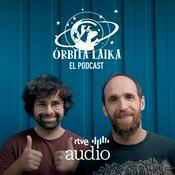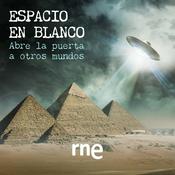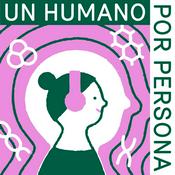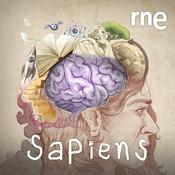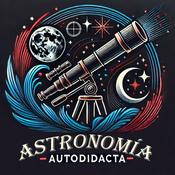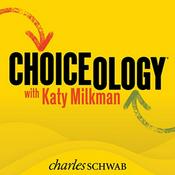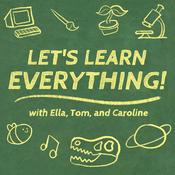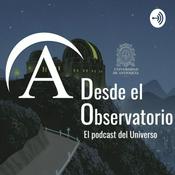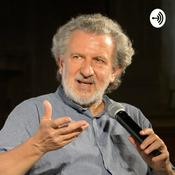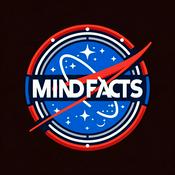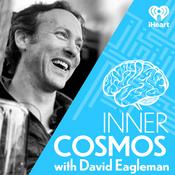99 episodios

Why Do We Laugh? Philosophers on Jokes, Humor, and the Human Condition ~ Mira Magdalena Sickinger
24/12/2025 | 1 h 2 min
“The podcast is great, but one thing hasn’t been covered yet: humour. It’s an essential part of our human condition, and would certainly be worth an episode.”This listener feedback was easy to agree with. From standup comedy to nervous laughter, our lives are filled with chuckles and giggles. Why? Why do adults laugh at witty jokes whilst children laugh at the simple pleasures of peek-a-boo? And why should any of us laugh in the first place?My guest is Mira Magdalena Sickinger. a poet and a philosopher of humour from the University of Vienna.We cover a lot in the discussion: from the social roles of humour, to the politics of joking, and the therapeutic effects of a humorous attitude. In the course of the conversation, we cover the views of many intellectual giants, from Sigmund Freud to Immanuel Kant — and while the conversation includes a handful of silly jokes (be warned), it ends with a deeper reflection on how humour can serve as a window into the human condition itself. FACT CHECKINGNo errors have been found as of now. If you find an error in this or other episodes, get in touch via the form below.LINKSArticles and essays: OnHumans.Substack.comSupport: Patreon.com/OnHumansContact Form: https://forms.gle/h5wcmefuwvD6asos8MENTIONSSimon Critchley | Ted Cohen | Robin Dunbar | Ágnes Heller | John Morreal | Immanuel Kant | Thomas Wilk & Steven Gimbel | V S Ramachandran | Sigmund Freud | Janet Bing & Joanne Scheibman | Thomas Nagel | Aristotle | Thomas Aquinas | John Dewey | Robin TylerKEYWORDSPhilosophy | Psychology |Anthropology | Incongruence theory | Relief theory | Superiority theory | Play theory | Humor | Blended spaces | Stasi & communism jokes in East Germany | Feminist & queer humor | Jokes | Absurdity | Irony | Existentialism | Meaning of life |

Restless Humanity: The Epic Migrations Into the Americas, Polynesia, and... Beyond? ~ Andrés Moreno-Estrada
05/12/2025 | 25 min
We are a movable species. In less than 50 thousand years, Homo sapiens has penetrated practically all corners of the earth. This is an episode about those epic migrations, with a focus on the two furthest edges of the human migratory map: the Americas in the West and the Polynesian islands in the East. In the end, we discuss emerging evidence that those branches met each other -- work coming directly out of the work of my guest, Andrés Moreno-Estrada.Enjoy!DECODING OUR STORYThis is episode 3 in the "Decoding Our Story" mini-series, recorded live at the Salk Institute's CARTA symposium on ancient DNA. The other episodes are:"The Neanderthal Mirror: Latest Findings About the Lines Between Us" ~ David Gokhman "Beyond Race: A New Outlook on the Shape of Humanity" ~ Diyendo MassilaniFACT CHECKINGNo errors have been found as of now. If you find an error in this or other episodes, get in touch via the form below.LINKSArticles and essays: OnHumans.Substack.comSupport: Patreon.com/OnHumansContact Form: https://forms.gle/h5wcmefuwvD6asos8CARTA symposiumThe Moreno labKEYWORDSHuman population history | Human origins | Anthropogeny | Anthropology | Ancient Migration | Out of Africa | Homo sapiens | Ancient DNA | Comparative genetics | Austronesian expansion | Taiwan | Admixture | Archaeogenetics | Archaeology | Polynesia | Easter Islands | Rapa Nui | Hawai'i | Aotearoa New Zealand | Tonga Fiji | Native American origins | Latino genetics | Latinx genetics | Hispanic genetics | Indegenous genetics |

Beyond Race: A New Outlook on the Shape of Humanity ~ Diyendo Massilani
01/12/2025 | 14 min
European thinkers once divided humanity into distinct "races". The idea stuck, even if the science moved on. The shape of humanity, it turned out, is far messier than the old race theorists ever imagined.This much is well known.Still , genetics does study different human "populations". Biological differences between these populations are reported every day. So have we simply changed words? Has anything really changed?Yes, everything has changed. To explain why, I'm glad to have Diyendo Massilani on the show.Trained in France and Gabon, Massilani runs a lab at the Yale School of Medicine, where he studies ancient DNA and human adaptations. This fall, his lab has produced one of the most interesting analysis of human biodiversity that I have ever seen. I'm proud to feature it on the podcast before publication. Our conversation begins from the counter-intuitive implications of the Out of Africa theory, and its significance for ideas about race. We then discuss Massilani's own analysis about how the level of genetic differences between modern-day humans.As always, we finish with my guest's reflections on humanity. DECODING OUR STORYThis is episode 2 in the "Decoding Our Story" mini-series, recorded live at the Salk Institute's CARTA symposium on ancient DNA. The other episodes are:"The Neanderthal Mirror: Latest Findings About the Lines Between Us" ~ David Gokhman (published)"Restless Humanity: The Epic Migrations Into America, Polynesia, and... Beyond?" ~ Andrés Moreno-Estrada (5th of Dec)FACT CHECKINGNo errors have been found as of now. If you find an error in this or other episodes, get in touch via the form below.LINKSArticles and essays: OnHumans.Substack.comSupport: Patreon.com/OnHumansContact Form: https://forms.gle/h5wcmefuwvD6asos8CARTA symposiumThe Massilani labKEYWORDSHuman evolution | Human origins | Anthropogeny | Anthropology | Paleoanthropology | Genetics | Homo sapiens | Ancient DNA | Comparative genetics | Human biodiversity | Admixture | Archaeogenetics | Archaeology | Mbuti | Papuans | Neanderthals

The Neanderthal Mirror: Latest Findings About the Lines Between Us ~ David Gokhman
27/11/2025 | 21 min
Genetics is rewriting the human story. This week, On Humans takes you behind the scenes of this rapidly evolving frontier via three live-recordings, captured at the Salk Institute's CARTA symposium on ancient DNA. The first episode explores the differences between us and the Neanderthals.For centuries, we tried to understand Neanderthals through stones and bones alone. Now genetics is offering a new tool, allowing researchers to see how ancient bodies and brains developed. In this opening episode, David Gokhman explains what these new tools are revealing about us, Neanderthals, and the lines between us.UP NEXT "Beyond Race: New Surprises About the Shape of Humanity" ~ Monday Dec 1st with Diyendo Massilani"Restless Humanity: The Epic Migrations Into America, Polynesia, and... Beyond?" ~ Friday Dec 5th with Andrés Moreno-EstradaFACT CHECKINGNo errors have been found as of now. If you find an error in this or other episodes, get in touch via the form below.LINKSArticles and essays: OnHumans.Substack.comSupport: Patreon.com/OnHumansContact Form: https://forms.gle/h5wcmefuwvD6asos8CARTA symposiumGokhman's labKEYWORDSHuman evolution | Human origins | Anthropogeny | Anthropology | Archaeogenetics | Archaeology | Paleoanthropology | Genus Homo | Neanderthals | Ancient DNA | Comparative genetics | Archaeogenetics | Language evolution | Origins of language | Symbolic culture | Extinction | Species concept

Can We Tell a (True) Story of Human Origins? Live from UC San Diego
24/11/2025 | 42 min
The science of human origins keeps producing new theories. But are we any closer to telling a true story of human origins? Or are we simply drowning in data? Earlier this November, the chair of UCSD’s Department of Anthropology invited me to explore this question in a campus talk. My optimistic claim was that underneath many of the field’s important debates, a powerful story has been emerging. At its core, this is a story about calories, cooperation, and climate change. And at the centre of it are not men hunting or women gathering.At the centre of it are children playing and learning.Here is the recording from the talk . Check out also my Substack essay inspired by this talk, with many of the pictures and graphs from the slides! PS. I was in San Diego to attend a CARTA symposium on the role of genetics in the study of human origins. I managed to record three episodes behind the scenes. Live recordings coming soon!FACT CHECKINGNo major errors have been found yet. As a small correction, the mention about macaques vs giraffe's should have been about neurons in the cortex, not total neurons in the brain. The main idea doesn't change. If you find an error in this or other episodes, get in touch via the form below.LINKSArticles and essays: OnHumans.Substack.comSupport: Patreon.com/OnHumansContact Form: https://forms.gle/h5wcmefuwvD6asos8KEYWORDSHuman evolution | Human origins | Anthropogeny | Anthropology | Paleoanthropology | Genus Homo | Australopithecins | Human brain | Comparative neuroanatomy | Human tool cultures | Alloparenting | Cooking hypothesis | Expensive tissue hypothesis | Life history | r vs K strategies |
Más podcasts de Ciencias
Podcasts a la moda de Ciencias
Acerca de On Humans
Escucha On Humans, Materia Oscura y muchos más podcasts de todo el mundo con la aplicación de radio.net
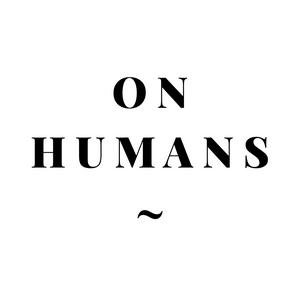
Descarga la app gratuita: radio.net
- Añadir radios y podcasts a favoritos
- Transmisión por Wi-Fi y Bluetooth
- Carplay & Android Auto compatible
- Muchas otras funciones de la app
Descarga la app gratuita: radio.net
- Añadir radios y podcasts a favoritos
- Transmisión por Wi-Fi y Bluetooth
- Carplay & Android Auto compatible
- Muchas otras funciones de la app


On Humans
Descarga la app,
Escucha.






